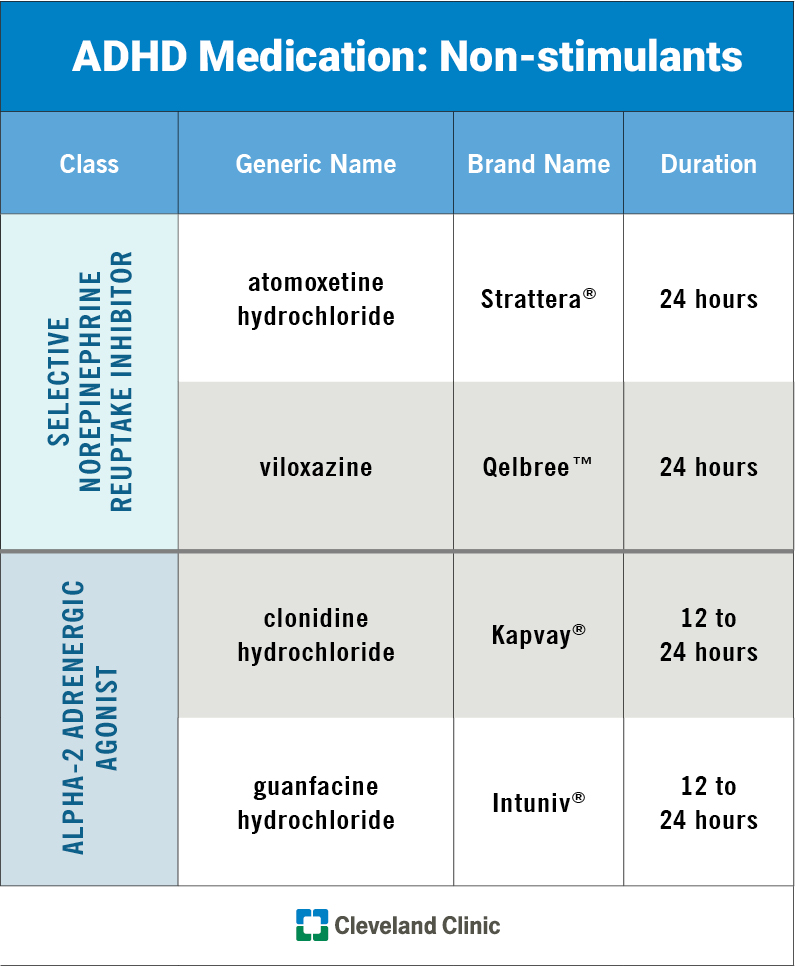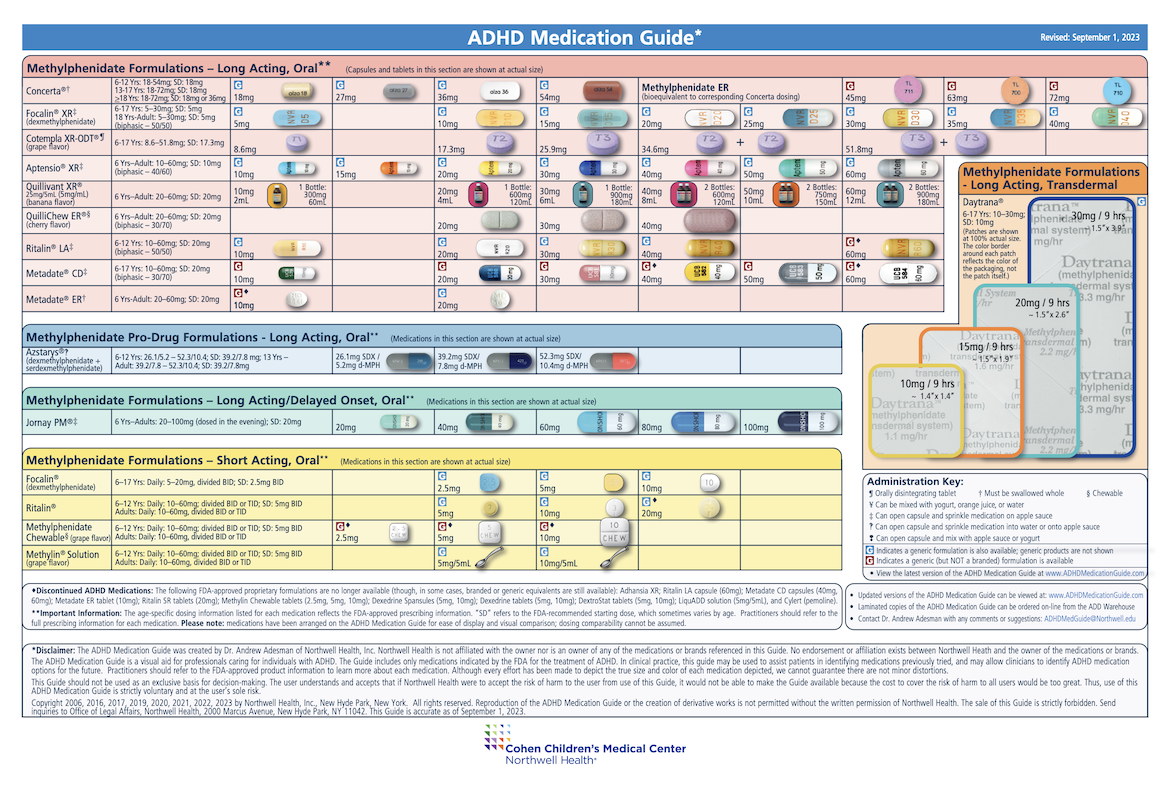Same Day Mental Health Services for Prompt Assistance and Care
Same Day Mental Health Services for Prompt Assistance and Care
Blog Article
Exploring Effective ADHD Treatment Options for All Ages
The intricacies of Attention deficit disorder (ADHD) existing distinct obstacles across various age, demanding a thorough exploration of reliable treatment alternatives. A combination of behavior treatments, medicinal treatments, and way of life alterations has shown assurance in dealing with the varied needs of people with ADHD. The efficacy of these techniques can differ significantly based on personal scenarios, increasing essential questions about customized strategies. As we analyze the spectrum of therapy methods readily available, it becomes vital to think about not just their prompt effects yet additionally their long-lasting ramifications for people and families.
Recognizing ADHD and Its Effect
Attention-Deficit/Hyperactivity Condition (ADHD) is a neurodevelopmental condition defined by consistent patterns of inattention, hyperactivity, and impulsivity that can significantly influence different aspects of a person's life. It commonly shows up in youth, although symptoms can linger into adulthood. The core signs and symptoms of ADHD can interrupt educational efficiency, impede social interactions, and make complex work endeavors.
People with ADHD usually deal with preserving concentrate on jobs, organizing tasks, and following via on directions, which can lead to academic underachievement (Depression Treatment). In social contexts, impulsivity might lead to troubles in developing and sustaining partnerships, as individuals may disrupt conversations or make rash decisions without thinking about effects
The irregularity in signs and symptom discussion indicates that ADHD can impact individuals in different ways, demanding a personalized approach to management. Comprehensive recognition of ADHD's nature and effects lays the foundation for checking out appropriate therapy choices tailored to each individual's demands.
Behavioral Therapies for ADHD
Many behavior modifications have been developed to properly resolve the difficulties related to ADHD, focusing on changing certain habits and promoting essential abilities. Amongst one of the most identified methods are cognitive-behavioral therapy (CBT), parent training, and social abilities training.
CBT assists individuals identify and alter adverse thought patterns and actions, promoting a more favorable overview and enhanced self-regulation. This treatment commonly consists of practical approaches for managing impulsivity and enhancing company. Parent training programs encourage caretakers by outfitting them with methods to strengthen positive actions and set consistent limits, which can be particularly beneficial for kids with ADHD.
Social skills training is another important part, training people with ADHD how to interact properly with peers - Depression Treatment. This strategy commonly involves role-playing and feedback to boost communication, teamwork, and conflict resolution abilities
Including these behavioral therapies into a detailed therapy plan can significantly boost working and lifestyle for people with ADHD. Ultimately, the performance of these treatments depends on tailored techniques that take into consideration the special demands of each person, thus promoting durability and flexibility in day-to-day life.
Drug Options Available
For numerous individuals with ADHD, medicine can play a substantial function in managing signs and enhancing general performance. The 2 main classifications of medicines recommended for ADHD are energizers and non-stimulants.
Energizers, such as methylphenidate and amphetamine-based drugs, are one of the most generally utilized treatments. These drugs work by raising the degrees of neurotransmitters, particularly dopamine and norepinephrine, in the mind, which helps enhance interest and decrease impulsivity and attention deficit disorder. They usually generate fast results, making them a preferred choice for numerous clients.

It is vital for health care carriers to perform a detailed analysis to identify the most proper medicine based upon private demands, clinical history, and possible side results. Normal follow-up and surveillance are additionally critical to guarantee the performance of the picked treatment and to make any required changes.
Lifestyle Modifications to Consider
Taking care of ADHD successfully extends beyond drug, as way of life adjustments can significantly improve overall well-being and signs and symptom control. Including structured routines is vital; constant routines help individuals with ADHD manage their time effectively and minimize feelings of bewilder.
Regular physical activity is another important element. Exercise not just helps to improve concentration but likewise enhances mood and decreases stress and anxiety degrees. Tasks such as yoga exercise or team sports can be especially helpful, advertising both physical fitness websites and social interaction.
Nourishment likewise plays a critical role. Depression Treatment. A balanced diet plan abundant in omega-3 fats, whole grains, and lean proteins can add to enhanced focus and cognitive feature. Restricting sugar and processed foods is a good idea, as these can intensify attention deficit disorder and impulsivity
Sleep health is important for taking care of ADHD signs and symptoms. Developing a regular rest timetable and creating a restful atmosphere can boost rest quality, causing far better attention and psychological law.
Alternate and Alternative Methods
Alternate and this link holistic methods to ADHD treatment offer a diverse series of choices that complement conventional approaches. These techniques commonly focus on way of living alterations, nutritional interventions, and restorative methods that aim to boost general wellness while addressing ADHD signs and symptoms.

Mindfulness and behavior modifications are additionally obtaining traction as holistic treatments. Practices such as yoga, reflection, and cognitive-behavioral treatment can cultivate self-regulation and enhance focus. These methods support emotional durability, which is particularly advantageous for people with ADHD.
Organic supplements, such as ginkgo biloba and ginseng, are occasionally checked out; nevertheless, it is critical to get in touch with health care professionals before including these into treatment strategies. While alternative and holistic techniques can offer important assistance, they ought to ideally be used together with evidence-based treatments to accomplish ideal outcomes for handling ADHD throughout all ages.
Final Thought
In summary, effective ADHD therapy necessitates a detailed method that includes behavior modifications, medicine, lifestyle modifications, and all natural approaches. Customized interventions can dramatically boost people' functioning and high quality of life, while ideal drug guarantees optimal signs and symptom monitoring. In addition, taking on organized routines, taking feeling very depressed part in routine physical activity, and practicing mindfulness can improve psychological regulation and focus. This multifaceted method emphasizes the value of individualized care in attending to the varied needs of people with ADHD across every age groups.
Report this page